Summer Swimming with Your Dog
Swimming is a great way to cool off during the summer months, and most dogs enjoy it, but swimming can also dry out their coat and skin and increase the risk of ear infections. It is important to pay close attention to their skin and coat as too much swimming can result in dry and sensitive skin.
Pool Swimmers

Remember, not all dogs are natural swimmers. Most dogs need to learn to swim, and those with heavy bodies and short back legs often struggle in the water. Just like with children, you must actively supervise your dog around any pool and always make sure pool gates are closed and that your dog can’t squeeze through any gaps on the pool fence.
After swimming, hose or wash your pet thoroughly. Chemicals in the pool can strip the oils from your dog’s coat, leaving it dry and brittle, so it’s essential to rinse the coat thoroughly after each swim. Towel dry your dog and spray the coat with a conditioning spray like Houndztooth’s Detangler or Hugo’s Blend No.1 Conditioning & Deodoriser Spray. Ensure you spray to the skin and comb right through to prevent mats and tangles. If you are washing your dog with shampoo, use a gentle moisturising shampoo formulated for dogs to help support the skin barrier. An omega 3 supplement such as Houndztooth’s Skin & Coat Health meal topper may also help hydrate the skin.
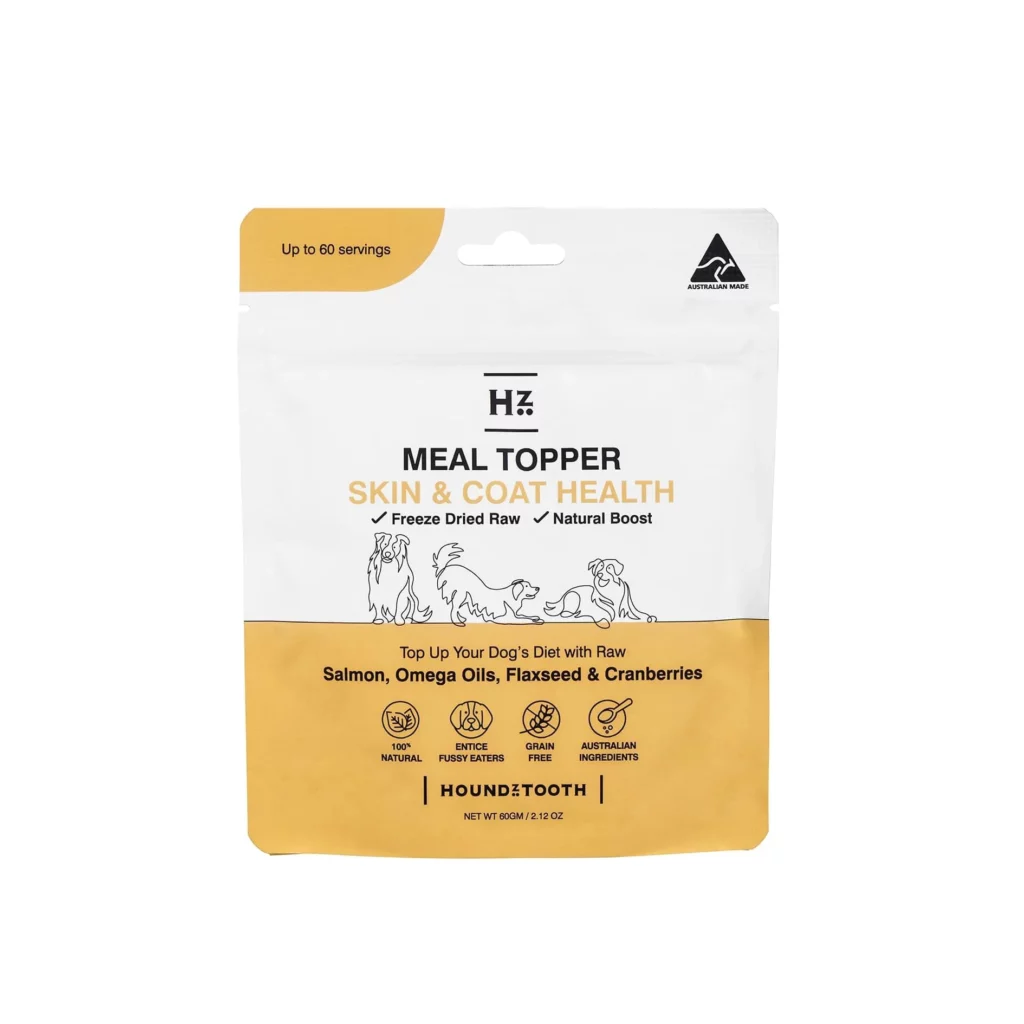
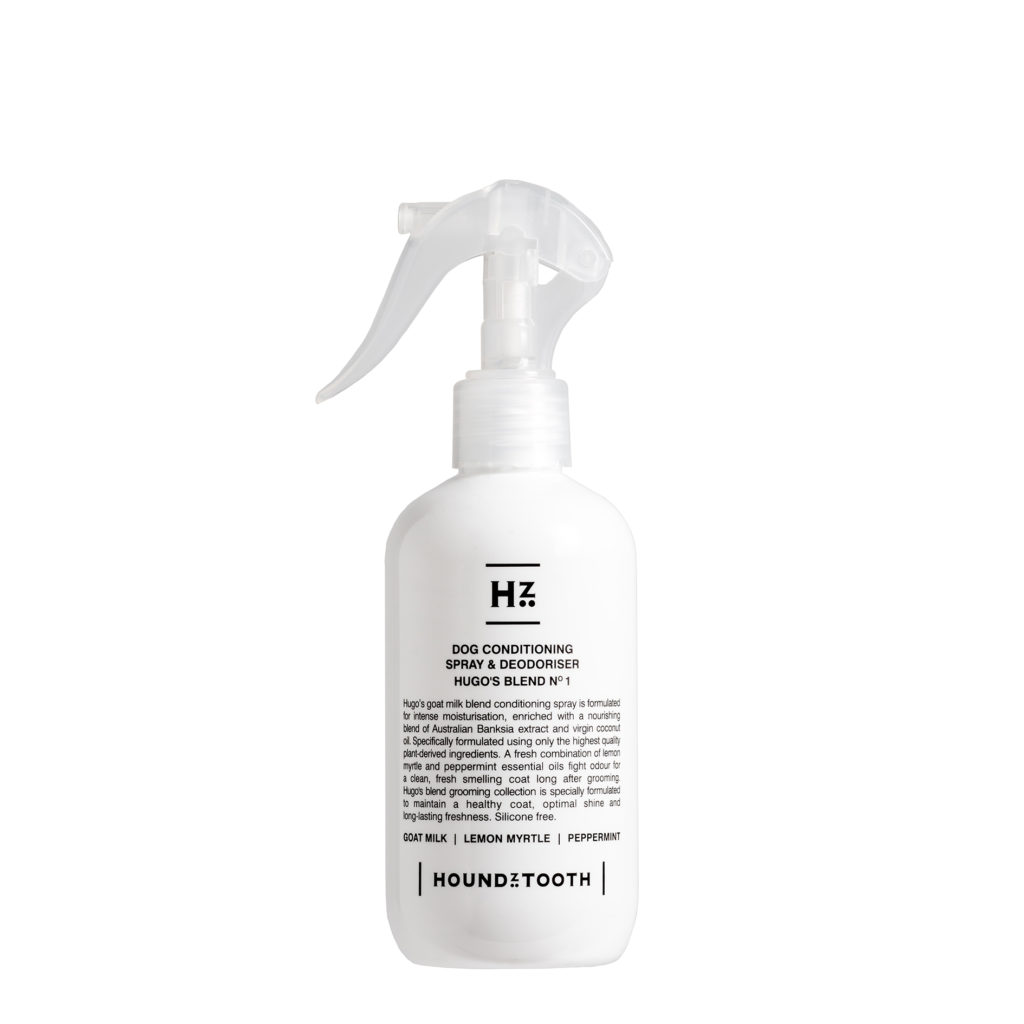
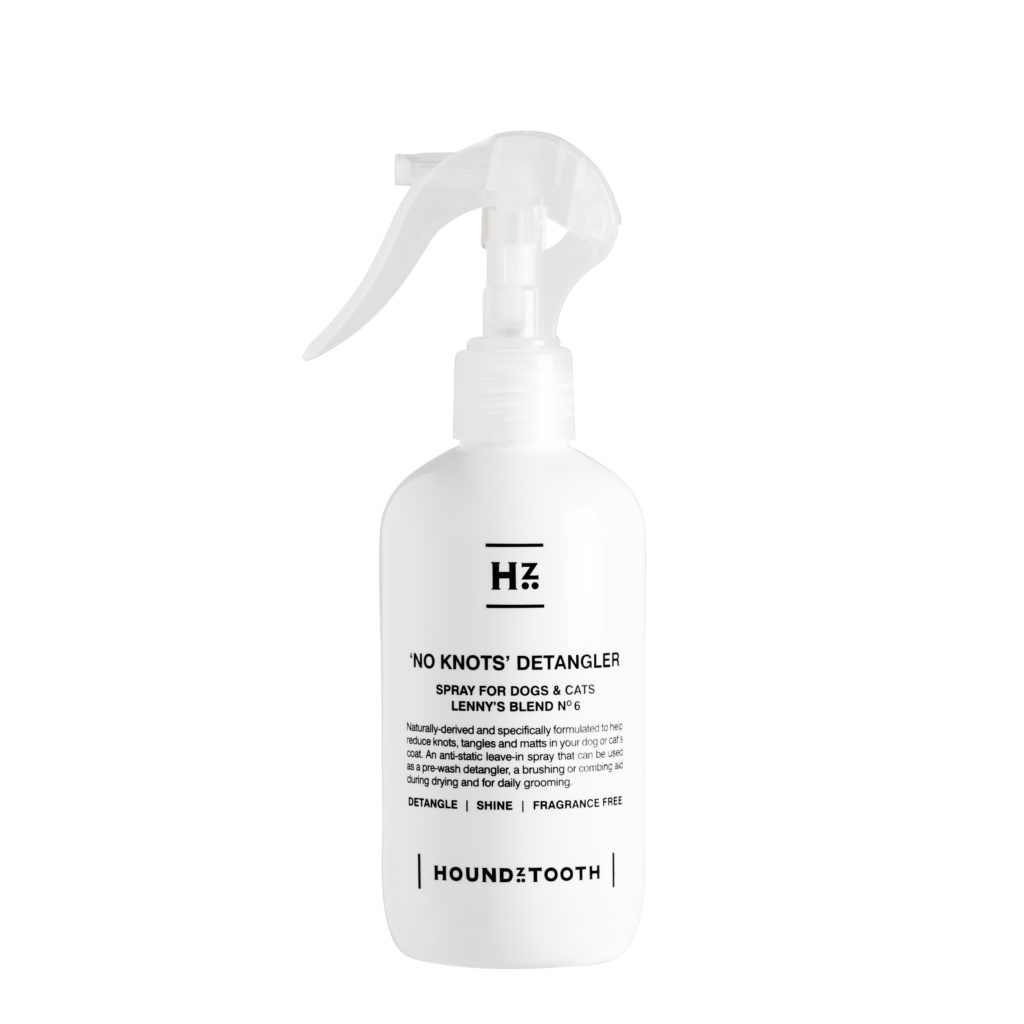
Beach Swimmers

Dogs love to find dead, rotting things to roll in, and there are usually plenty of these to be found at the beach. Some things such as blowfish can be deadly if eaten, so keep a close eye on your dog and teach them to have a good recall and a command such as ‘leave it.’
Saltwater is more drying than fresh water and can cause the skin to become dry and flaky, and sand may be very irritating, especially for dogs with long coats.
Ideally, rinse and towel dry your dog before getting in your car to remove sand trapped in the coat and salt, which may cause skin irritation. For short-coated dogs, a thorough rinse is usually plenty but long-coated dogs need a proper bath to remove salt and sand close to the skin. Use gentle products such as Houndztooth’s Hugo’s Blend No.1 dog shampoo. Once dry, brush thoroughly to remove any sand particles that are still in the coat.
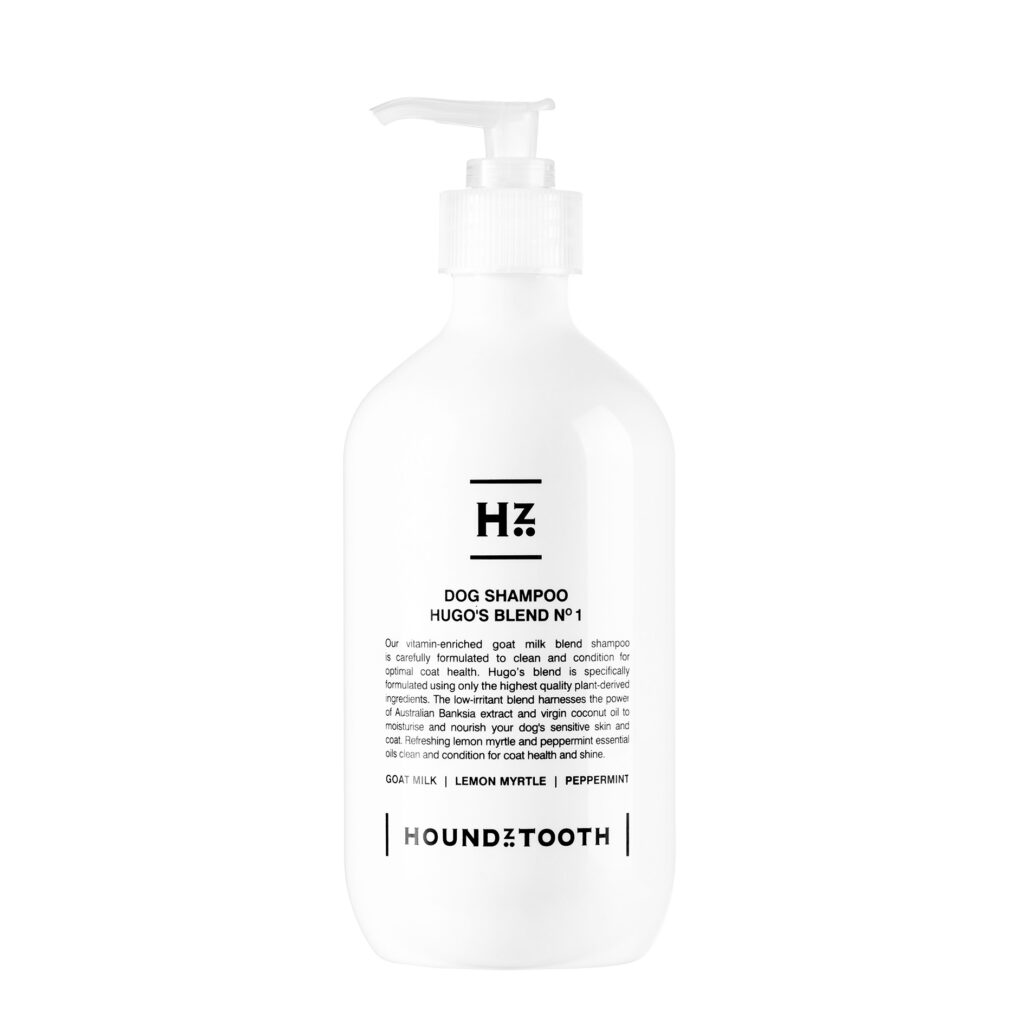
Lakes
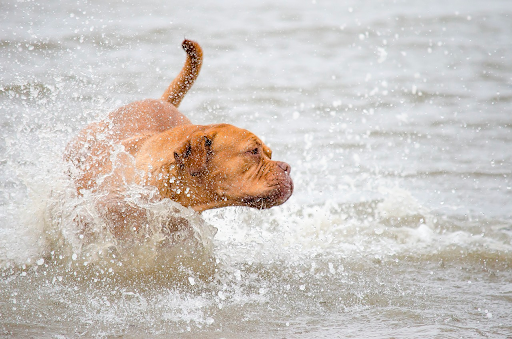
If your dog is swimming in a lake or river, give them a full bath after washing off muddy water, pollutants and whatever else may be in the water. If washing regularly, use a gentle shampoo such as Houndztooth’s Hugo’s Blend No.1 dog shampoo and condition thoroughly with a product like Hugo’s Blend No.1 Conditioning & Deodoriser Spray.
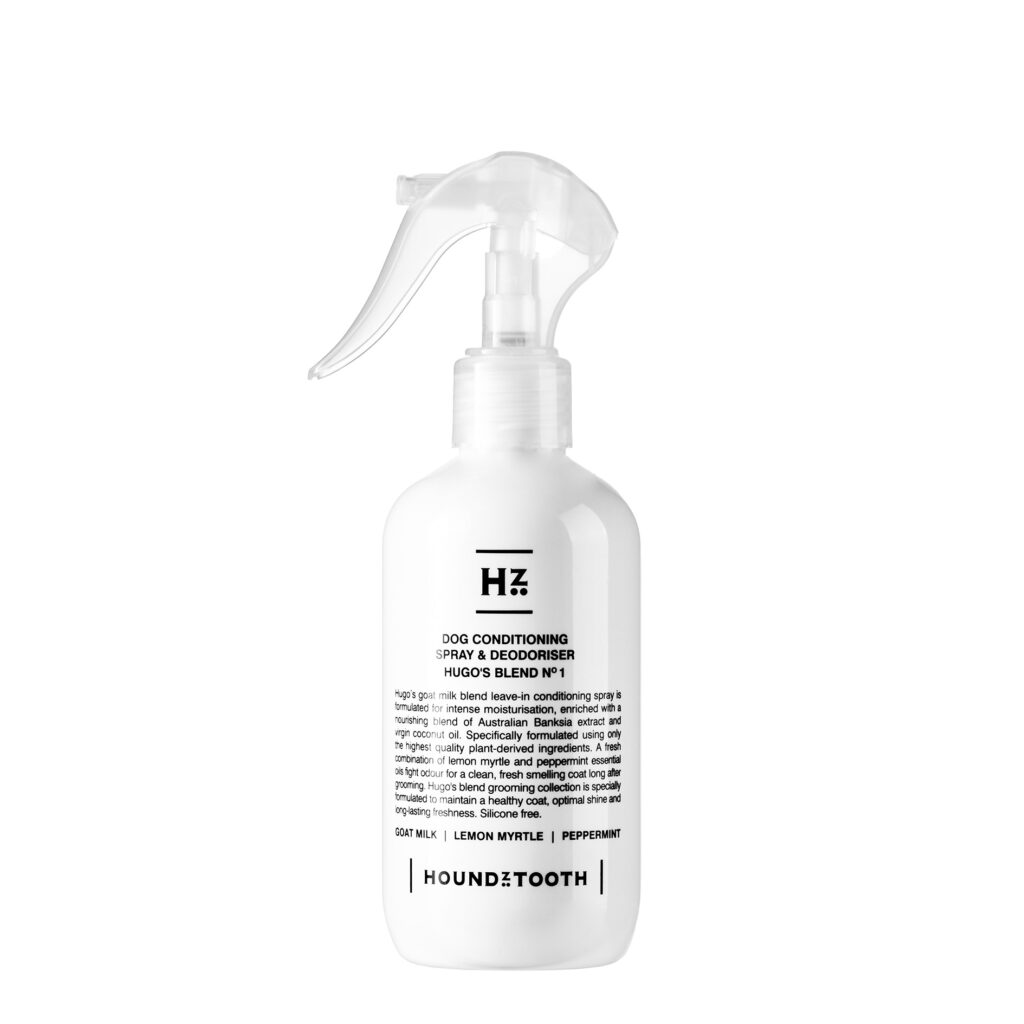

Ear Care
After any swimming, pay attention to drying the inside of your dog’s ears, as dogs are prone to ear infections after swimming. Dogs with pendulous ears such as Cocker Spaniels and Cavalier King Charles are especially at risk – the water, salt and sand gets trapped in the ear, creating a perfect environment for bacteria and yeast to grow. Use a vet-recommended cleaner to dislodge any debris and help dry out the ears.
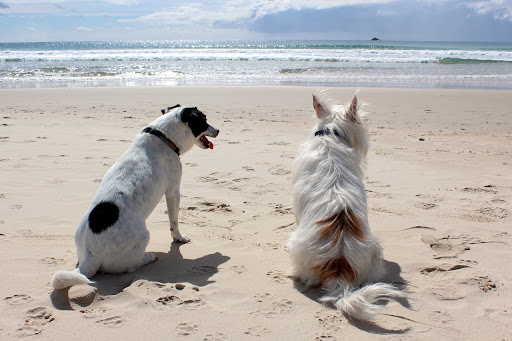
Summer swimming with dogs can be a joyful experience for both pets and their owners. With these tips in mind, I hope your summer days are filled with laughter and splashes, sharing the water with your canine friends.
